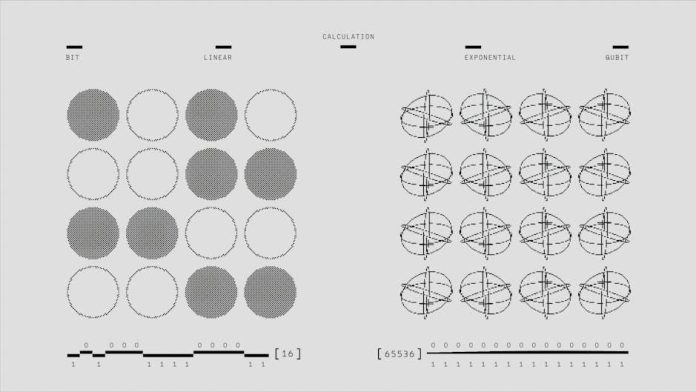In the digital age, where the glow of screens often illuminates our lives more than the sun itself, social media has woven itself into the fabric of our daily existence. It’s a world where moments are captured, curated, and shared with a global audience, blurring the lines between reality and perception. As we scroll through feeds filled with snapshots of picture-perfect vacations, meticulously plated meals, and seemingly flawless lives, a question quietly lingers in the back of our minds: Is comparison on social media unavoidable? This article delves into the intricate dance between human nature and the digital stage, exploring whether the act of comparing ourselves to others is an inescapable consequence of our online interactions or a habit we can consciously reshape. Join us as we navigate the virtual landscape, seeking to understand the underlying forces at play and their impact on our sense of self.
Understanding the Psychology Behind Social Media Comparisons
In the digital age, where scrolling through perfectly curated feeds is a daily ritual, the tendency to measure our lives against others has become a psychological phenomenon. At the heart of this behavior is the concept of social comparison theory, which suggests that individuals determine their own social and personal worth based on how they stack up against others. This is especially pronounced on social media platforms, where the line between reality and aspiration blurs. The ubiquitous presence of highlight reels showcasing achievements, adventures, and aesthetics can often skew perceptions, leading to a distorted view of one’s own life.
- Upward Comparisons: These occur when individuals compare themselves to those they perceive as better off, often resulting in feelings of inadequacy or envy. While this can be motivating, it may also lead to dissatisfaction.
- Downward Comparisons: Conversely, comparing oneself to those perceived as worse off can boost self-esteem and provide a sense of gratitude. However, this can also foster complacency.
Understanding these dynamics is crucial in developing a healthier relationship with social media. Recognizing that what is often portrayed online is a selective slice of reality can help mitigate the negative impacts of comparison, encouraging a more balanced and mindful approach to digital interactions.

The Role of Algorithms in Fueling Comparison Culture
In the intricate web of social media, algorithms are the unseen architects shaping user experiences. These complex mathematical formulas determine what content surfaces on our feeds, subtly nudging us towards a culture of comparison. By curating content based on our interactions, preferences, and behaviors, algorithms craft personalized digital landscapes that often highlight the most engaging—yet not necessarily the most beneficial—content. This often means an endless stream of highlight reels and curated perfection, fostering a constant cycle of self-evaluation against others.
- Selective Visibility: Algorithms prioritize posts that garner higher engagement, typically those that elicit strong emotional reactions. This can create a skewed perception of reality, emphasizing the extraordinary over the everyday.
- Echo Chambers: By showing us content similar to what we’ve interacted with before, algorithms can trap us in echo chambers, reinforcing existing beliefs and interests, and sometimes intensifying feelings of inadequacy.
- Endless Scrolling: The infinite scroll feature, powered by algorithms, keeps users engaged for longer periods, increasing the chances of encountering content that might trigger comparison.
These algorithmic designs, while enhancing user engagement, inadvertently encourage users to measure their lives against others, often leading to feelings of inadequacy and envy. Understanding the role of algorithms can empower individuals to navigate social media more mindfully, fostering a healthier digital experience.

Practical Strategies to Mitigate Negative Impacts of Social Media
In an age where social media has become a ubiquitous part of our daily lives, the tendency to compare oneself to others can feel almost inevitable. However, there are practical strategies that can help mitigate the negative impacts of this phenomenon. One effective approach is to curate your social media feed intentionally. Unfollow accounts that trigger negative emotions or self-doubt and instead, follow those that inspire and uplift. This simple act can transform your social media experience from a source of stress to a wellspring of positivity.
Another strategy is to set boundaries around your social media usage. Consider implementing screen-free times during the day or using apps that monitor and limit your social media time. This not only reduces the opportunity for comparison but also encourages more meaningful interactions offline. Additionally, practicing mindfulness when using social media can be beneficial. Being conscious of your emotional state while scrolling and acknowledging feelings of envy or inadequacy can help you address them constructively. By taking these proactive steps, you can create a healthier relationship with social media, one that enhances rather than diminishes your well-being.

Embracing Authenticity in the Age of Digital Comparison
In a world where scrolling through curated feeds has become a daily ritual, it’s easy to fall into the trap of digital comparison. Social media platforms, with their glossy images and highlight reels, often blur the line between reality and perception. While it’s tempting to measure our lives against the filtered perfection presented online, it’s crucial to remember that these platforms often show only the best moments, omitting the struggles and mundane aspects of everyday life. Embracing authenticity means recognizing the curated nature of social media and understanding that each individual’s journey is unique and incomparable.
- Focus on personal growth: Set personal goals that align with your values rather than external expectations.
- Curate your feed: Follow accounts that inspire and uplift, rather than those that provoke envy or self-doubt.
- Practice gratitude: Regularly reflect on your own achievements and the positives in your life.
By consciously choosing authenticity over comparison, we can foster a more genuine connection with ourselves and others, transforming our digital spaces into platforms for inspiration and growth.
Closing Remarks
As we navigate the digital tapestry of our interconnected world, the shadow of comparison often looms large, weaving itself into the very fabric of our online interactions. Yet, while this phenomenon may seem unavoidable, it also offers a unique opportunity for reflection and growth. By acknowledging the power of comparison and understanding its impact, we can begin to unravel its hold, transforming our virtual landscapes into spaces of empowerment rather than competition. In this delicate balance between connectivity and individuality, perhaps the true challenge lies not in avoiding comparison altogether, but in redefining its role in our digital lives—turning the mirror outward into a window of empathy, understanding, and shared human experience.


































